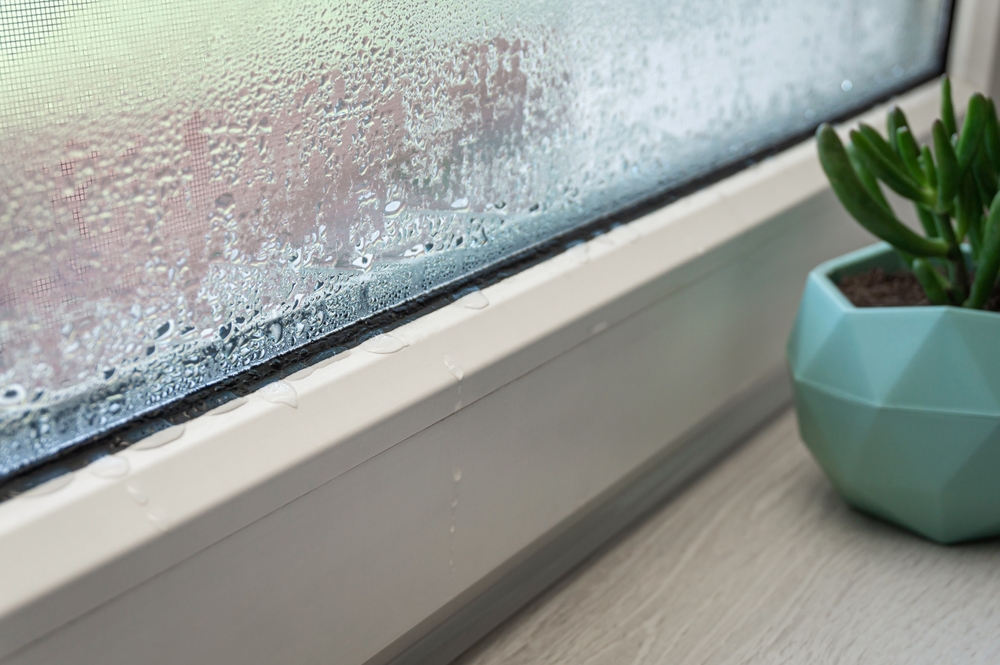
Living in Central Florida means proximity to sunshine and beaches. Unfortunately, living in Central Florida also means dealing with humidity levels that can make the air feel thick enough to swim through. While your air conditioner works tirelessly to keep your home cool, high humidity can be a sneaky enemy, making your AC work harder and reducing your overall comfort. So, how do you win the battle against Florida’s humidity? Here’s how!
How Humidity Impacts Your AC System
1. Your AC Works Harder Than It Should
Air conditioners don’t just cool your home—they also remove moisture from the air. But when humidity levels are extremely high, your AC has to work overtime to keep up. According to the U.S. Department of Energy, the ideal indoor humidity level is between 30% and 50%. However, Florida’s outdoor humidity often hovers between 60% and 90%, meaning your AC is constantly battling excess moisture. This extra workload can lead to higher energy bills and faster wear and tear on your system.
2. High Humidity Reduces Cooling Efficiency
Ever walked into a room that’s technically cool but still feels sticky and uncomfortable? That’s the effect of excessive humidity. When humidity is too high, sweat doesn’t evaporate as easily, making it feel hotter than it actually is. The Environmental Protection Agency (EPA) explains that high humidity can make 78°F feel like 85°F or higher, leading homeowners to lower the thermostat unnecessarily, which increases energy consumption.
3. More Moisture Means Higher Risk of Mold & Mildew
Excess humidity can create a perfect breeding ground for mold and mildew, which thrive in damp environments. According to the Centers for Disease Control and Prevention (CDC), indoor humidity above 60% can contribute to mold growth, leading to potential health risks like respiratory issues and allergies. This is why maintaining the right humidity level is just as important as temperature control.
How Air Conditioners Remove Humidity
Your air conditioner removes humidity by pulling warm air from your home over the evaporator coil. As the air cools, moisture condenses into water droplets, which are then drained away from your system. This dehumidification process helps maintain comfortable indoor air quality. As long as your AC is properly sized for the space it’s cooling, your humidity will e controlled. If it’s too large for your space, it may cool the air too quickly without effectively removing enough moisture, leaving your home feeling damp and clammy. If it’s too small, your air conditioning may remove too much humidity, creating dry air that is hard on your skin and your respiratory system.
How to Know Your Home's Humidity Level
To keep humidity in check, you can use a hygrometer, a small device that measures indoor moisture levels. Many modern thermostats also come with built-in humidity sensors, allowing you to monitor your home’s humidity and adjust your settings accordingly. Keeping an eye on these levels ensures your AC is working efficiently and your home remains comfortable.
How to Win the Humidity Battle
1. Use a Dehumidifier
A whole-home dehumidifier can work alongside your AC to remove excess moisture, reducing strain on your system and improving indoor comfort. According to Energy Star, using a dehumidifier can lower cooling costs by 10-15% because dry air feels cooler, allowing you to set your thermostat higher without sacrificing comfort.
2. Keep Your AC in Top Shape
Regular maintenance, including cleaning coils and replacing filters, helps your AC run efficiently. The Department of Energy states that a well-maintained AC can reduce energy use by 5-15%.
Our ClubOne membership provides guaranteed maintenance checks two times a year. In addition, members get added benefits like discounts on equipment and front-of-the-line service! ClubOne memberships are available for both HVAC systems as well as for plumbing systems.
3. Upgrade to a Variable-Speed AC
Unlike traditional single-speed ACs, a variable-speed system can adjust its cooling output based on humidity levels. This allows it to run longer at lower speeds, effectively removing moisture and maintaining consistent comfort. The U.S. Energy Information Administration (EIA) reports that homes with high-efficiency, variable-speed systems can see up to 30% lower energy costs.
4. Improve Ventilation & Airflow
Ceiling fans, exhaust fans, and proper ventilation can help circulate air and reduce humidity buildup. The EPA recommends using exhaust fans in kitchens and bathrooms to remove excess moisture at the source. Ceiling fans don’t cool, but they do circulate the air, moving it over your skin, evaporating the sweat, and helping you feel cooler.
Don’t Let Humidity Win
Florida’s humidity may be relentless, but with the right strategies, you can keep your home cool, comfortable, and energy efficient. By understanding how humidity affects your AC and taking proactive steps to manage it, you can reduce energy costs, extend the life of your system, and breathe easier in your home.
Is your AC struggling against Florida’s humidity? Contact ServiceOne today to learn how we can help optimize your home’s cooling system for maximum comfort! Win the battle against humidity!

